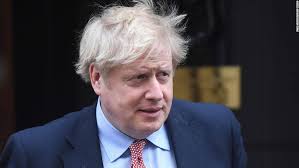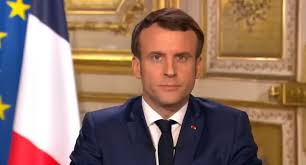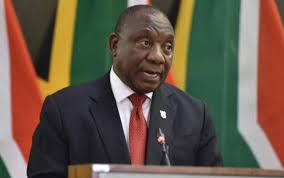Sheffield

PROFESSOR Anthony Costello forecasts 40 000 deaths and the highest death rate in Europe, and the Sunday Times (19 April 2020) features an article ‘Coronavirus: 38 days when Britain sleepwalked into disaster’.
We were in a bad way anyway, arriving at 2020 after ten years of austerity under the Tory government with the NHS severely underfunded, social care brought to its knees, the misery of universal credit, and stretched food banks (locally, demand has risen a further 50%).
We seem to have no leader at the moment. After ‘shaking hands with everyone’, Boris Johnson is recuperating, reading Truth Telling for Dummies perhaps, or looking for gravitas (zip-wiring and garden bridge promotion being inadequate previous experience for pandemics). Even when he’s there, he isn’t: he skipped five COBRA meetings on Covid-19 in February (allegedly because he was trying to sort out his private life), already well-practised in absence with illegal prorogations and extended Caribbean holidays. Was it he leading the herd immunity policy early on, valuing modellers and behavioural scientists over medical experts; or Dominic Cummings who is now in extended self-isolation cooking up heaven-knows-what?
At daily briefings, Foreign Secretary Dominic Raab, questionably in communication with the prime minister, looks unsure about his status. We hear the lie which is the daily death toll, regularly corrected on the BBC news with the words ‘in hospital’. Health Secretary Matt Hancock repeatedly told us there was enough PPE, hospital and care home staff repeatedly said there wasn’t, and Matt finally cracked and blamed health workers for not using the equipment properly, the petulant playground kid pointing the finger. This is the weekend we might just run out and the promised huge delivery has now been delayed. And lest we forget, let me remind us that the United Kingdom missed three chances to join an EU scheme to bulk buy PPE.
Small businesses say they responded to the call for help with manufacturing PPE, ventilators and Covid tests, and heard no more. There is confusion over who is leading this – the Department of Health, Public Health England, NHS England? There is a suspicion of bias towards the big names – Dyson, Burberry – who’s got shares? Oh and of course some of our leaders are making ‘super normal returns’ on their investments because of this crisis.
We are promised 100 000 tests (or is it 300 000; 34; 974 000? https://www.indy100.com/article/priti-patel-coronavirus-testing-government-numbers-9461231) by the end of April. With testing stations often inaccessible, certainly to anyone who doesn’t drive, I already have a suspicion that the target may be pronounced unnecessary because there just isn’t the demand.
My ultimate in insult, requiring its own paragraph, was Home Secretary Priti Patel’s ‘I’m sorry if people feel there have been failings’.
There has been no proper scrutiny, and rumour has it journalists have been instructed to be gentle at daily briefings. Parliament is due to end its extended Easter recess on Tuesday, joining the rest of us working from home. Let’s hope for some proper debate and accountability.
Glasgow

ON Thursday I received an email from Nicola Sturgeon with the subject line, ‘Together, we will get through this.’ The First Minister of Scotland says thank you and stick with it; she knows that this is hard. In a statement on the same day she acknowledges the hard work of health and care workers and other essential staff. Her pride and deep sincerity are palpable. Later, on her Twitter feed, I watch her #clapforcarers #clapfortheNHS video and I am proud to have a first minister who actually does care for our health service. I wonder if Boris Johnson was clapping at 8 pm on Thursday from the comfort and safety of Chequers after his discharge from hospital last week with the same vigour that the Conservatives cheered when they blocked the 1% pay rise for NHS staff and firefighters in 2017.
With pride at Nicola and dismay at Boris, this week I decided to take a look elsewhere in the world. Also on Thursday, Jair Bolsanaro fired Health Minister Luiz Henrique Mandetta over differences of opinion about the seriousness of the coronavirus pandemic, to put it very lightly. The Brazilian president, who takes pride in his disregard for the environment, has touted the virus as ‘a bit of a cold’. Unsurprisingly, someone else who isn’t holding back is Donald Trump who, after stalling for six weeks before responding to the impending pandemic and suspending all funds to the World Health Organisation, has also on Thursday decided to introduce a three-phase approach to ‘opening up America again’. Clearly both of these leaders (read also: Putin, Obrador, Netanyahu, etc.) think that if you remove the people who are telling you that you’re doing things wrong and if you stuff your fingers in your ears and pretend that everything is okay anyway, then you eradicate the problem itself.
Thankfully, there are many leaders who are stepping up to the plate and making necessary, albeit difficult decisions. In Iceland, Prime Minister Katrín Jakobsdóttir is offering free testing for the entire population, not just those with active symptoms like most of the rest of the world, providing priceless research data and saving lives. She has, by listening to public health authorities (rather than dictating to them), recognised the important part that asymptomatic coronavirus carriers are playing in its rapid spread, causing huge strain on hospitals and carers.
Another leader we can look to is Tsai Ing-wen, the President of Taiwan, who introduced over one hundred preventative measures resulting in successful containment and only six deaths in the country. And now she’s donating millions of face masks to Europe and the US. Shout outs also go to Chancellor Angela Merkel in Germany who acted decisively and took to testing straightaway; and Jacinda Ardern of New Zealand who was early to enforce total lockdown. What connects these leaders, as well as their gender (think for a second about how we are socialised by gender in relation to leadership), is their quick action, their no-nonsense approach while maintaining empathy towards the people they are leading. No blaming, no narcissism, no ego; but responsibility, understanding and care.
To return to Nicola Sturgeon and the message she ended Thursday’s statement with: right now, ‘we are being reminded of what really does matter in life … the value of family and community … the fundamental and enduring importance of love, kindness and solidarity.’
Sallèles d’Aude

DONALD Trump and Boris Johnson have both said they are going to give up 20% of their income until the coronavirus emergency is over – true or false? Well, false! But there is one national leader who has made this move – Jacinda Ardern in New Zealand – and doesn’t that tell us a lot about the different styles of leadership that we are seeing at the moment?
What kind of leader do we need, want, expect and get in these moments of crisis? What does how our leaders respond tell us about their motives, character and moral fibre?
On a Monday evening (13 April) I listened to M. Macron, the French president, talking to the nation about the crisis, the government’s response and what comes next. This was the fourth time he had been on air and it provoked the largest audience (37 million of us!).
He spoke with authority and passion – and, remarkably (why do I say that with surprise in my voice?), honesty! He admitted the government had made mistakes, and where, and he said how the government had dealt with it. He spoke with great sincerity about the debt we owe to our essential workers, right across the board, and spoke of the need to protect them all. He was clear as to what the future holds, with a clear plan for now but also an acceptance that this might have to change if circumstances demand. He also spoke about a future in which inequality should and would be addressed, how the current crisis is showing up inequalities that need to be corrected – recognition that though we might all be vulnerable to the virus, current events are showing we are not all equally protected.
For me, M. Macron exemplified what I am looking for in a leader in a time of crisis – clarity, empathy, honesty, vision. Yes, the government have made mistakes and he seemed to understand that acknowledging this is not a sign of weakness, but of strength. I expect everyone to make mistakes, especially when dealing with a totally new (though not totally unforeseen) disaster scenario; but what I want to see is how those mistakes are handled, how quickly they are rectified, how they will be avoided in the future.
While the future is still unclear, I want to have a leader who is open, who is obviously taking factual information into account and thinking things through, who is trying to bring some good out of what is a disastrous and terrible experience for us all. I want a leader who is demonstrably compassionate, who is thinking about ‘the people’, society as a whole, and not just his own polling figures; a leader providing thoughtful commentary on what we are all experiencing, not empty, meaningless sound bites. Above all, I want a leader who sounds as though they have their finger on the pulse, knows what is happening, and is in charge – not perfect, definitely not self-serving, but definitely human!
I believe we have a good leader for our times here in France – for that I am grateful.
Pietermaritzburg

THE general verdict is that South Africa is doing well, leading the world, having hit the virus with lockdown early enough to prevent the health system being overwhelmed. Figures of cases and deaths seem to confirm this, although there is one big flaw. Metropolitan South Africa may well be locked down; but peri-urban and more rural areas are definitely not. (A giveaway is the appearance of Mount Frere in the broadcast traffic report.) What exactly this means for the future is unclear.
Three weeks into lockdown the country’s leadership is self-categorising into the good, the bad and the ugly. Cyril Ramaphosa has been imposingly presidential and measured, evoking memories for some people of Madiba. Minister of Health Zweli Mkhize speaks as a doctor with authority and he has brought in experts in infectious disease such as Abdul Salim Karim, renowned for his research on HIV/AIDS. Karim appears firm and honest, his opinions based on readings of the medical research literature. Significantly, the SA Institute of Race Relations has commended the presidency and health department for a willingness to listen carefully and consider ideas.
The ANC is a ramshackle alliance of factions that still behaves more like a liberation movement than a modern political party. Large swathes of its operations are dominated by crooks and opportunists feeding off every conceivable form of corruption; an organisation of looters. Consequently, Ramaphosa’s Cabinet is not the one he would choose. It has to balance competing factions and accommodate a range of mediocrities.
So we find Minister of Minerals Gwede Mantashe questioned about the processes that are now (commendably) unlocking the mines berating a journalist who had (unsurprisingly) ‘clearly never worked on a mine’. Whenever a Cabinet minister attacks a reporter you can be sure the former lacks competence. (Mantashe last year spoke in Australia about a new mineral called hazenite, which had been part of an April Fool’s joke.)
And then there are the ugly, who from the very outset have barked commands and threats at the citizenry in order to force compliance without any attempt to explain the rationale behind regulations. It seems, for example, that there are good reasons for the ban on (official) alcohol and tobacco sales, but emphasis has been on enforcement rather than public health education. Minister of Defence, Nosiviwe (Skop, Skiet en Donner) Mapisa-Nqakula’s overweight and heavily armed soldiers have invaded Alexandra (Johannesburg) and Masiphumelele (Cape Town) and now face at least one murder charge and several of assault.
Minister of Police (The Hat) Bheki Cele threatens widespread arrest (last weekend this included an entire wedding packed into vans and driven off to the cells) and claims that he has a massive network of informers at his command. He probably does; in the security industry. Jacques Marais, the reporter who witnessed the apartheid-style brutality at Masiphumelele by army and police, described their Cabinet bosses as ‘despicable people’ and forecast an uprising.
Unsurprisingly, the current state of disaster mirrors the state of the nation. Some very worthy people are doing their best for the country, but are constantly undermined by ineptitude and outright thuggery. This is a situation that requires subtlety and high quality public relations that are totally beyond the ability and inclination of many in the ‘ruling party’ as it prefers to be known. And so we pin our hopes on a president whose political position is anything but secure. If security forces open fire on starving demonstrators, it will become untenable.
Contributions from Sheffield by Penny Merrett, Glasgow by Caitlin Merrett King, Sallèles d’Aude by Jonathan Merrett and Pietermaritzburg by Christopher Merrett.